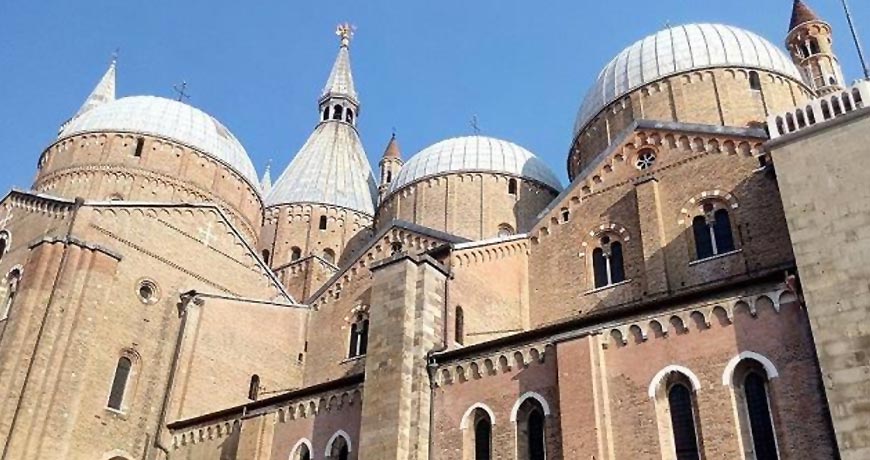Touristic information: Padua

Padova boasts a very ancient history, which has left much historical and artistic evidence in the city's structure. Legend tells of its foundation taking place when Antenore escaped from Troia, in 1185 BC. The city went through its first development stage further to the alliance with Rome against the Gallic tribes, but in 602 AD it was razed to the ground by the Lombards. Reconstruction was slow and saw its peak in the 11th century, after the invasion of the Hungarians. However, Padova's real cultural and social evolution really developed with Venice's domination, which favoured the growth of the University, born in 1222, and settled in the Renaissance period with the presence in town of artists such as Donatello, Mantegna, Ruzzante, Palladio and, since 1592, Galileo. Later the city became part of the Lombard-Veneto system until the unification of Italy.
The old city is surrounded by renaissance walls erected further to the siege by Maximilian I of the Hapsburgs, and precisely during the renaissance period some of Padova's most significant monuments were built: the Duomo, with a façade that was never completed, the Baptistery, where you can admire the frescoes by Giusto de' Menabuoi, the Basilica di Santa Giustina, risen on ancient Early Christian catacombs containing an altar-piece by Veronese, the lodges of Piazza dei Signori, dominated by Torre dell'orologio, and the seat of the University (Palazzo del Bo'). Also don't miss a visit to Prato della Valle, one of the largest squares in Europe, at the centre of which rises the so-called Isola Mummia, surrounded by 78 statues of illustrious Paduans. The Cappella degli Scrovegni is an absolute must, famous for Giotto's frescoes, considered among the artist's greatest masterpieces. In the same area you can visit Palazzo della Ragione, the centre of city life in the municipal age, and Caffè Pedrocchi, its halls remaining as remembrances of the students uprising in 1848 against the Hapsburg power and still one of the most beloved bars in town today.
For lovers of tradition, every year the Teatro Giuseppe Verdi, part of the Teatro Stabile del Veneto, offers a programme full of interesting appointments with opera and ballet classics. The events organised by the Teatro Ragazzi Padova, meant to attract young people to the art of drama, are also very interesting. There are initiatives dedicated to cinema culture, organised by various associations: the new association Arci, with its festival of short films Vicolo Corto; the Centro Universitario Cinematografico, which organises exhibits on non-mainstream national cinema; finally, Promovies presenting the Padua Film Festival.
